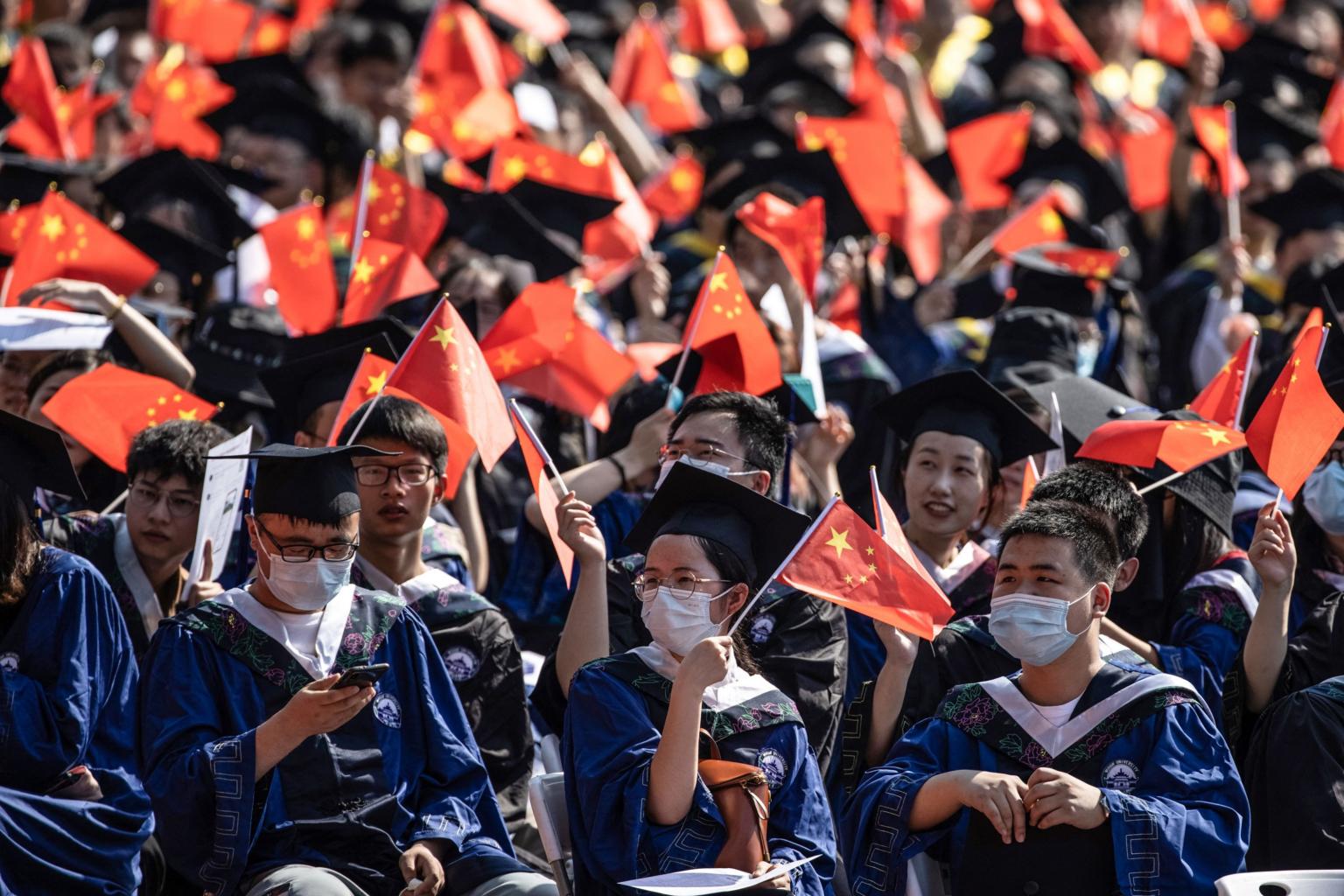China's hedge funds beat Wall Street with US$300,000 annual pay for AI, computing grads
Sign up now: Get ST's newsletters delivered to your inbox

Graduates are in demand at funds which use computer models to trade that have been lifted by inflows from rich Chinese.
PHOTO: AFP
Follow topic:
SHANGHAI (BLOOMBERG) - When computing major Garen Zhou deferred his studies in the United States because of the Covid-19 pandemic, he applied for internships at China's biggest Internet companies.
In the end, the Peking University graduate chose Ubiquant, a local hedge fund managing US$8 billion (S$10.76 billion) of assets, which is offering top college leavers annual salaries of as much as US$300,000. After a year, Mr Zhou became a permanent employee, giving up his enrolment at Johns Hopkins University.
"The benefits of staying in this job far outweigh those of studying in the US both in terms of knowledge and financial return," said Mr Zhou, 23.
For elite students in artificial intelligence and computer science, companies like Ubiquant offer triple the US$100,000 sticker price for freshly minted college graduates on Wall Street, illustrating a shift in global financial hiring driven by the pandemic and rising emerging market wealth.
Rather than aspire to an education in the US that often leads to opportunities at global companies or even staying in America, some of the nation's best and brightest are choosing to stay home.
Graduates are in particular demand at funds which use computer models to trade that have been lifted by inflows from rich individuals in the world's second-biggest economy.
Assets at such funds in China have jumped tenfold compared with four years ago to exceed one trillion yuan (S$208 billion), according to Citic Securities estimates.
But quant funds are also competing for hires with Internet titans from TikTok owner ByteDance to Alibaba Group Holding, and global hedge funds including Bridgewater Associates and Citadel. The battle for talent even transcends business as China and the US make technological superiority important national objectives, channelling an increasing amount of support towards research and innovation, as well as data security.
Elite education
Seeking an elite education abroad is a well-trodden path, and the number of Chinese students pursuing computer science degrees in the US has steadily risen in the past decade. Now with more students deferring their studies as the global pandemic restricts travel, companies like Ubiquant have adjusted their hiring strategy by offering one-year internships.
So far that tactic is working. Ubiquant has seen an influx of talent, partly due to Covid-19 and also because a humbled tech industry in China is grappling with regulatory change. Applications have jumped six times this year to more than 300 compared with when the company was founded.
Zhejiang High-Flyer Asset Management is also capitalising on the changing priorities of graduates. The country's largest quant fund managing more than US$10 billion hired about 10 researchers over the past year, many of whom gave up overseas studies amid the pandemic, according to chief executive Simon Lu.
Shanghai Minghong Investment, which manages US$8.5 billion in China, hired more than 10 experts in artificial intelligence and natural language processing in recent years, according to founder Qiu Huiming.
And Lingjun Investment, which manages about US$7.7 billion, plans to expand its investment and research team by as much as a third to 140 people by the end of the year, the firm said.
China's private quant funds have been facing a persistent shortage of new talent since 2018 amid the industry's expansion, pushing up salaries, according to Mr Eric Zhu, Shanghai-based head of financial services at recruiter Morgan McKinley.
"It's hard to hire top talent like those that can already develop good strategies as they would prefer to trade themselves," Mr Zhu said.
The higher wages are in line with a broader global trend that goes beyond hedge funds, as business at financial firms is booming. In the span of a few months, entry-level salaries at top investment banks have quickly shot up to six figures, even before bonuses, as executives responded to a rebellion against the demands of Wall Street life. This was sparked by a damning presentation from a group of first-year analysts at Goldman Sachs.
And while hedge funds are helping China to hold on to students in priority areas like artificial intelligence, high salaries jar with President Xi Jinping's rhetoric about "common prosperity" as the Communist Party takes aim at wealth extremes.

